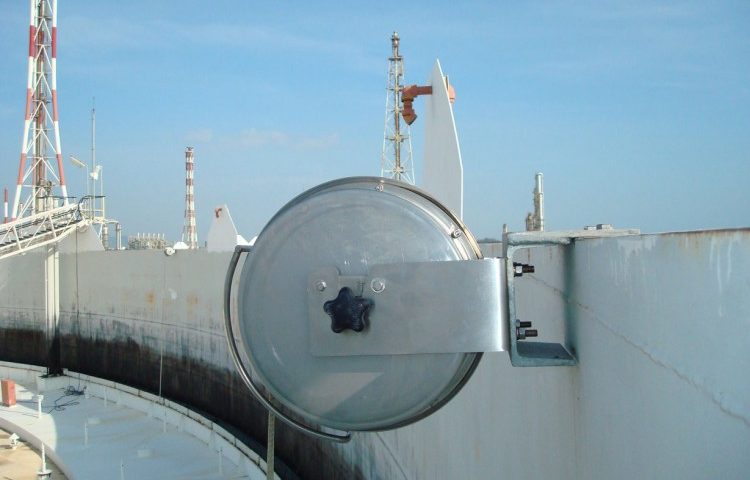- We Prevent Lightning Related Problems.

Lightning Strikes are the Weakest Link for Electronics
August 28, 2013
Don’t Leave Customers in the Dark – Protect Your Plant from Lightning
September 12, 2013Lightning Protection Systems are High Maintenance! Have you Checked your System Lately?

Retractable Grounding Assembly
By: Lightning Diva@Large
When it comes to lightning protection systems, equipment needs to be in good working order to be effective.
The summer months in the Western Hemisphere have proved to be challenging for many areas. Just recently more than 100,000 lightning strikes rained down on Oregon in just two days, sparking various wildfires throughout the central and southern parts of the state. Washington has also been a victim of these powerful strikes– over 60 wildfires ignited after a lightning storm early August.
But wildfires is not where the destruction ends. North Dakota’s oil fields have been exposed to five fires that attributed to lightning this summer. One in particular struck a saltwater disposal well damaging four tanks containing 380 barrels of saltwater and 20 barrels of oil and totalling over $100,000 in damages.
Not only did a lightning strike ignite a fire at a Southern California Edison Power Plant, the entire plant was shut down and caused over 120,000 power outages across Visalia, California. Incidents like these have reminded us here at Lightning Eliminators just how important it is to check and recheck your equipment once a lightning event has passed.
Of course once an event like this takes place, the emphasis turns to getting up and running as soon as possible. However, you can’t neglect taking a good look around to make sure the storm did not produce any lingering, unnoticed damage. Have you checked your lightning protection systems, and other equipment for that matter?
Good maintenance means you must inspect the system. How well do you maintain your equipment? What steps do you take to ensure that it is working properly? Does your company ignore it and wait until something goes wrong?
We have several customers that after an event will call and request we come out to inspect their systems. Then there are others who self-inspect and have ascertained that an incident has occurred and the system does in fact need repair.
There are also those who do not examine their solution at all and are shocked when a lightning strike actually hits them. Or, they are a victim of meantime between failure and eventually knocked off line, only to find that it was due to damaged equipment during a previous event. One customer did not realize that a mudslide had affected the positioning of their Chem-Rods™ grounding system, and on another occasion a tree had fallen on a Dissipation Array™ System (DAS™). These things happen all the time and rather than find out the hard way, it is better to check and make proactive reviewing a regular practice.
In addition, DAS users are required to have a recertification annually in order to validate their efficiency. If the recertification by Lightning Eliminators is not conducted, the No-Strike Warranty is no longer in place and there is no certainty that your system will function properly when needed.
LEC solutions for hard-to-maintain floating tank systems
While maintaining your LEC lightning protection equipment takes some time and effort, it is a welcome relief to many customers that use floating-roof storage tanks to store flammable products such as petroleum, natural gas and chemicals. The patented, award-winning LEC Retractable Grounding Assembly (RGA) is a solution that replaces some of the frequently damaged parts on floating roof tanks – metal shunts and wires installed as grounding solutions.
Shunts often break, and wires often tangle, and when that happens, floating roof tanks can actually become more vulnerable to fire from lightning. And, it does not even have to be a direct strike. When the grounding connection is compromised, even a nearby strike can cause the electrons on the roof of a tank to create a spark. With the challenges of improper grounding maintenance, and the fact that even nearby lightning poses a risk, it is no wonder many fires at floating roof tanks are lightning related. It is also another example why maintenance, and attention to potential risk, are essential.
While RGA systems require routine maintenance and inspection like any other piece of hardware, they are not easily compromised and require a fraction of the repair and replacement work seen with other systems.
We offer a host of services and are always happy to assist you with the maintaining your systems, but it is up to you to ensure their maintenance.

